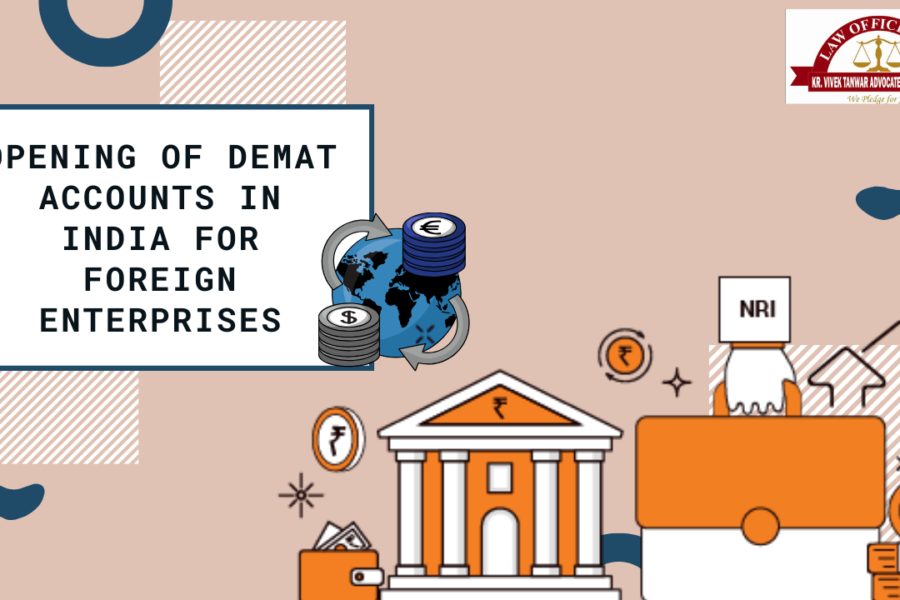On October 27, 2023, the Ministry of Corporate Affairs (MCA) published a notification that fundamentally altered the Indian market for private company securities issuance and management. With the exception of small businesses, the notification requires private enterprises to issue securities only in dematerialized form and to assist with the dematerialization of all currently issued securities within eighteen months of the end of the fiscal year that ends on or after March 31, 2023. The directive emphasises how urgently international businesses and wholly owned subsidiaries (WOS) must adhere to the new regulations.
Implications and ISIN Requirement: Obtaining an International Securities Identification Number (ISIN) is a significant requirement for WOS of international businesses operating in India. Furthermore, overseas businesses must open dematerialization accounts with a depository participant (DP) in order to start the dematerialization process. The internationally recognised ISIN code serves as a unique means of identifying securities and enables electronic trading and settlement on a global scale.
Steps for Obtaining an ISIN by WOS:
1. Choose a Registrar and Transfer Agent (RTA): An RTA is essential for WOS wishing to dematerialize assets since they help get ISINs from depositories like NSDL or CDSL. WOS works with RTA to compile the required paperwork.
2. Information/Documentation Submission with RTA and Verification: WOS provides RTA with a range of papers, such as undertakings, resolutions, certificates, and securities data. RTA carefully checks these materials for suitability and compliance.
3. Payment and Document Processing: WOS pays CDSL or NSDL one-time membership fees following document verification. The Tripartite Agreement and Master Creation Form are created by the depository. WOS acquires stamp papers, completes paperwork, and sends it to RTA for additional handling.
4. ISIN Issuance: After documents are successfully submitted and verified, regulatory bodies approve the issuing of ISINs. Every type of security slated for dematerialization is assigned a unique ISIN, which is essential for monitoring and controlling securities under regulatory guidelines.
Steps for Opening a Demat Account by a Foreign Company:
1. Choose a Depository Participant (DP): A DP serves as a go-between for overseas businesses wishing to register a demat account and helps to streamline the transfer from physical to electronic securities by acting as an NSDL or CDSL.
2. Information/Documentation Submission with DP and Verification: International businesses provide DP a range of papers, such as notarized copies of company documents, demat and KYC account opening forms, and information about the WOS’s ISIN. To make sure these documents comply with regulations, DP carefully checks them.
3. Payment & Account Opening: The foreign company pays DP one-time joining costs following a successful verification. After the fee payment procedure is finished, DP formally opens the demat account. After that, the foreign business is free to carry out operational tasks including dematerializing securities and taking part in corporate actions.
4. Annual Custody Fees: In exchange for continuing to provide the demat account with services, DP charges the foreign firm an annual custody cost that is determined by the amount of paid-up share capital.
Conclusion:
For international businesses operating in India, opening a demat account necessitates a methodical process, stringent adherence to legal requirements, and accurate documentation. The purpose of this essay is to shed light on crucial procedures for a smooth and legal debut into the Indian securities market, enabling international businesses to negotiate complexities and seize opportunities inside India’s vibrant financial sector. Following the prescribed protocols allows international corporations to open a Demat account with confidence, allowing for electronic holding, transfer of securities, and active participation in India’s thriving capital market.


Medicament prescribing information.
cost of lisinopril without a prescription
A beacon of reliability and trust.
They simplify global healthcare.
lisinopril 20 mg what to buy without prescription
Everything what you want to know about pills.
Their digital prescription service is innovative and efficient.
can i order generic lisinopril no prescription
I value their commitment to customer health.
Trust and reliability on a global scale.
buy generic lisinopril for sale
The ambiance of the pharmacy is calming and pleasant.
Thanks for sharing your thoughts on nordvpn coupons inspiresensation
special coupon code 2024. Regards
Nordvpn Code
350fairfax
Thanks for sharing such a pleasant thinking, piece of
writing is fastidious, thats why i have read
it fully
It’s really a nice and helpful piece of info. I’m glad that you
shared this useful information with us. Please keep us informed like this.
Thank you for sharing.
My blog – eharmony special coupon code 2025